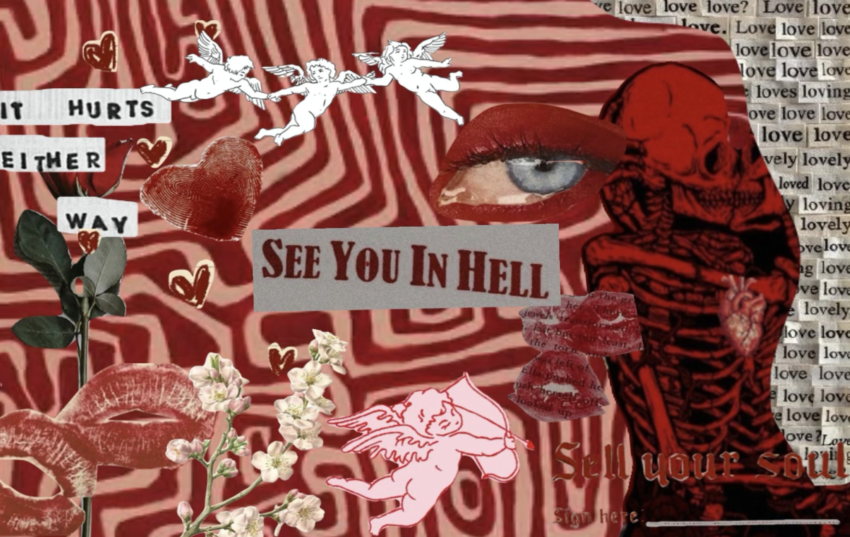By: Kaycee Portillo-Sorto ’25
I’m not entirely sure how it started but like everything in my life, it’s become a cycle. Like an itch on my leg, it begged me to scratch. No matter how much I scratched, however, I never felt satisfied. So I’ve pondered, reflected on, and discussed with friends within the walls of dining halls and dorm rooms, a topic on continuous rotation in college campuses: dating apps.
It’s an almost self-sacrificial act. I’m not naive enough to believe that an algorithm will be able to meaningfully fulfill any desires. People are much too complex to be reduced to datafication and algorithms. Their interests are fluid, muddled with uncertainties, desires, and complicated pasts. But, I’m not self-righteous enough to give up the game either.
So I’ve found myself routinely downloading and deleting apps as if they are an extension of my love life that I can turn on and off whenever I am too busy or too bored, too overwhelmed, or too unstimulated.
Yet time and time again, it is the same. Mediocre conversations, faces I won’t remember seeing, and an ever-increasing sense of meaningless consumption. Yet, ask any dating enterprise and they market themselves as the opposite. They present themselves as mediums for casual relationships and hookups, giving the user the ability to socialize with people without the fear of anxiety or rejection. They’ve managed to sell this as an empowering act, allowing you to set the terms for what you are seeking, presented as a game one can play without real consequences.
But is this really the case? Or is it an expertly constructed marketing campaign backed by a four-billion-dollar industry that has a vested interest in keeping us playing along?
The fact is, we have commodified the pursuit of love, a process that has been inexplicable by centuries of poets, writers, and composers. The marketization peddled by dating apps not only commodifies individuals in the hopes of offering calculated stability against the metaphysical uncertainties of love and intrapersonal relationships but reproduces feelings of alienation and loneliness within a culture rooted in aestheticization. Through a liberal understanding of dating apps, love is no longer confined to the limits of socioeconomic conditions, but by free will and choice. You have an endless flow of options and possibilities. As such, dating apps tune up our need for consumption via intimate relationships. How does one know there’s not always better out there? When does this fixation on consumption for “more” or “better” end?
Dating apps’ target market is comprised of confused, anxious yet ambitious young people and college students. Throw them an enticing method of controlling their own image and their intrapersonal relationships, and you have viciously devoted consumers. College students, who are constantly busy and are socialized by top universities to view humans as networking opportunities, make a particularly devoted consumer base. With most students being too busy for the ins and outs of dating life, there are really only two options: meaningless hookups to satisfy a sexual itch or quasi-marriages that sooth loneliness so that they can instead focus on academic and career endeavors.
One of the ways in which dating apps target young people is by offering them the opportunity for re-presentation. We all try to curate a persona on dating apps. The app is deliberately designed for a re-presentation of individuals outside of their immediate reality. Paradoxically, it is these same personas we are trying to embody in our immediate realities The proliferation of the societal need to categorize, label, and compartmentalize is an extension of attempting to control what we can–namely, ourselves and our “image”– in a world in which nothing seems to be in our control.
We love to believe in the allure behind the profile on our screens, the idea that dating apps are an avenue through which, amidst the chaos of our lives, we can have some control over our dating lives. We buy into the ideology of dating apps; we commodify ourselves and others to experience a hit of serotonin and social connectedness. But in the same manner in which social media apps have been proven to make people lonelier, so too have dating apps.
Hinge claims it utilizes a “Nobel Prize-winning algorithm” for manufacturing connections between people. Companies have taken that which is so integral to the human experience such as love and social connectedness and sold it back to us. We are both product and consumer.



